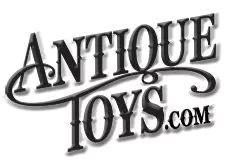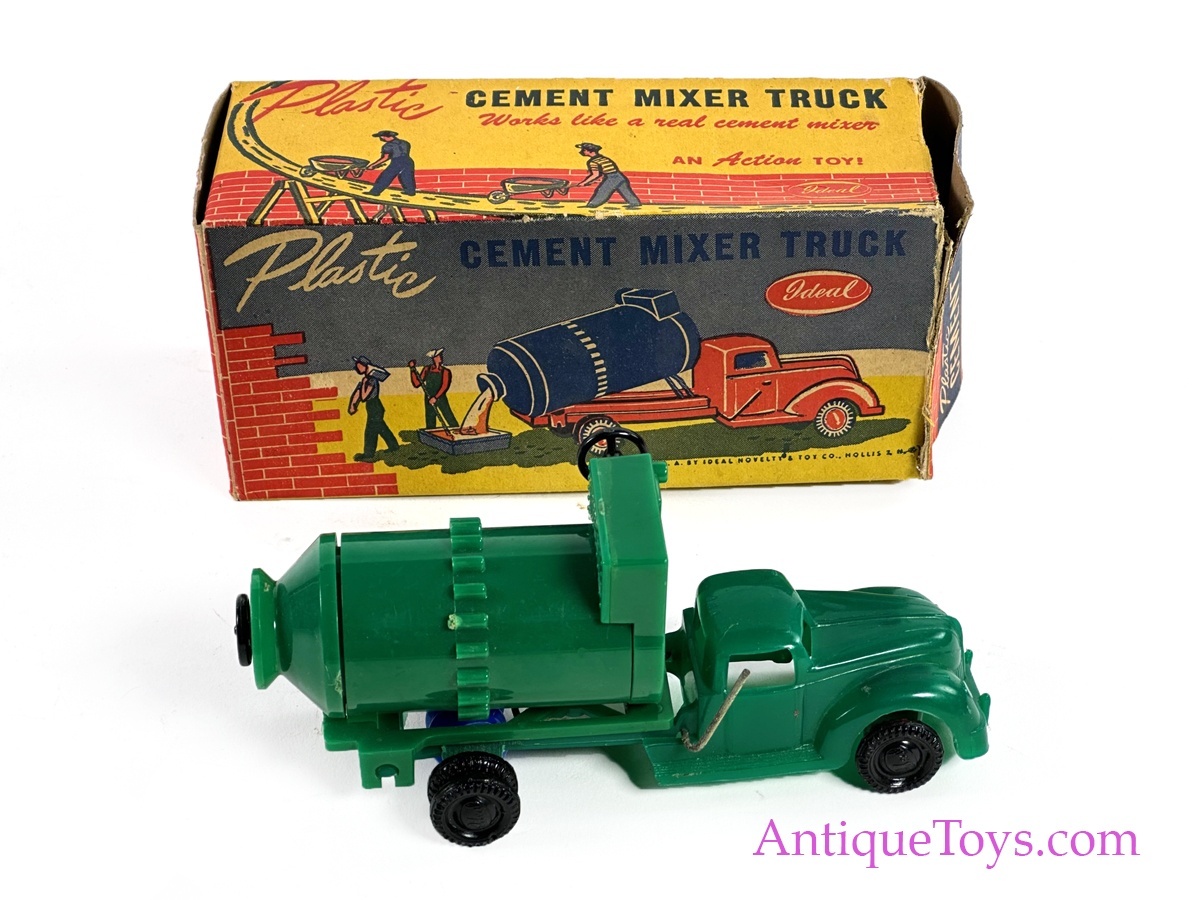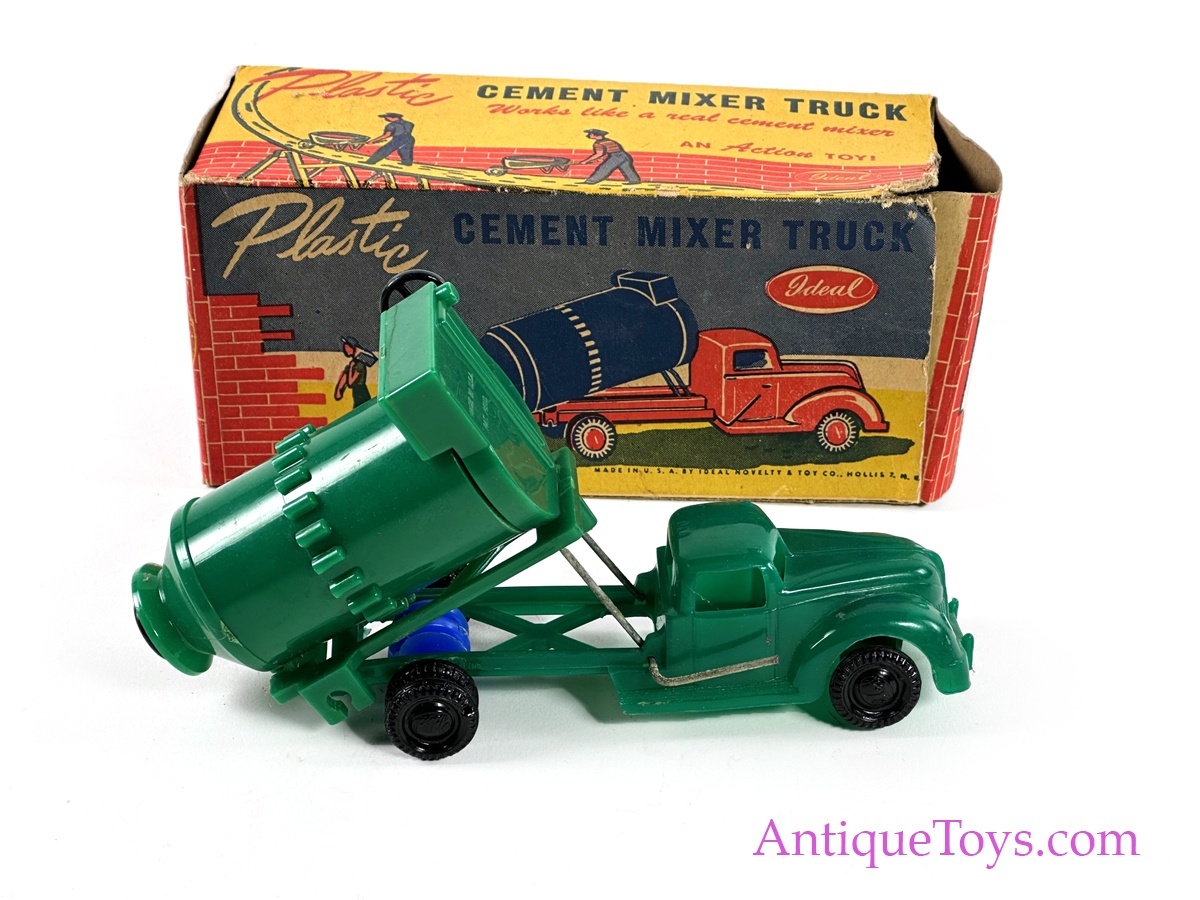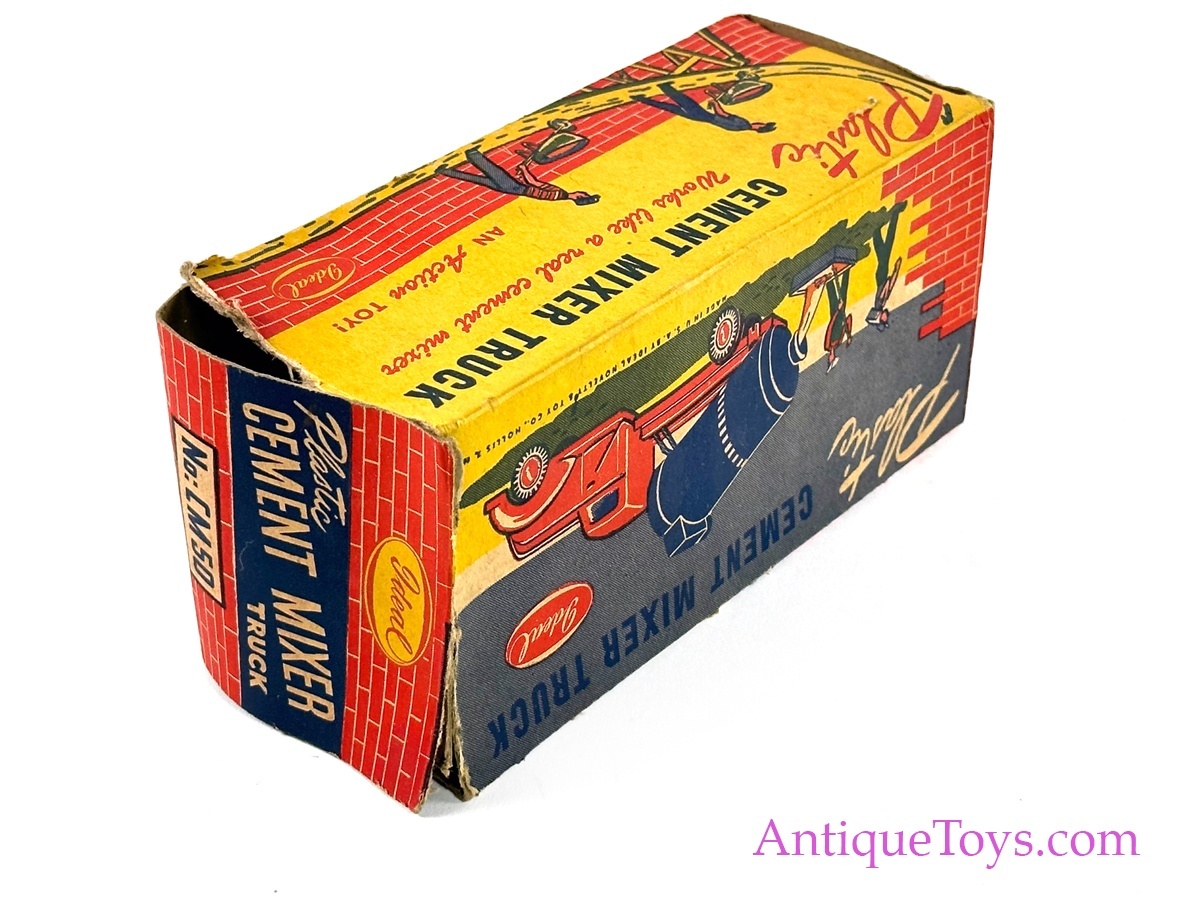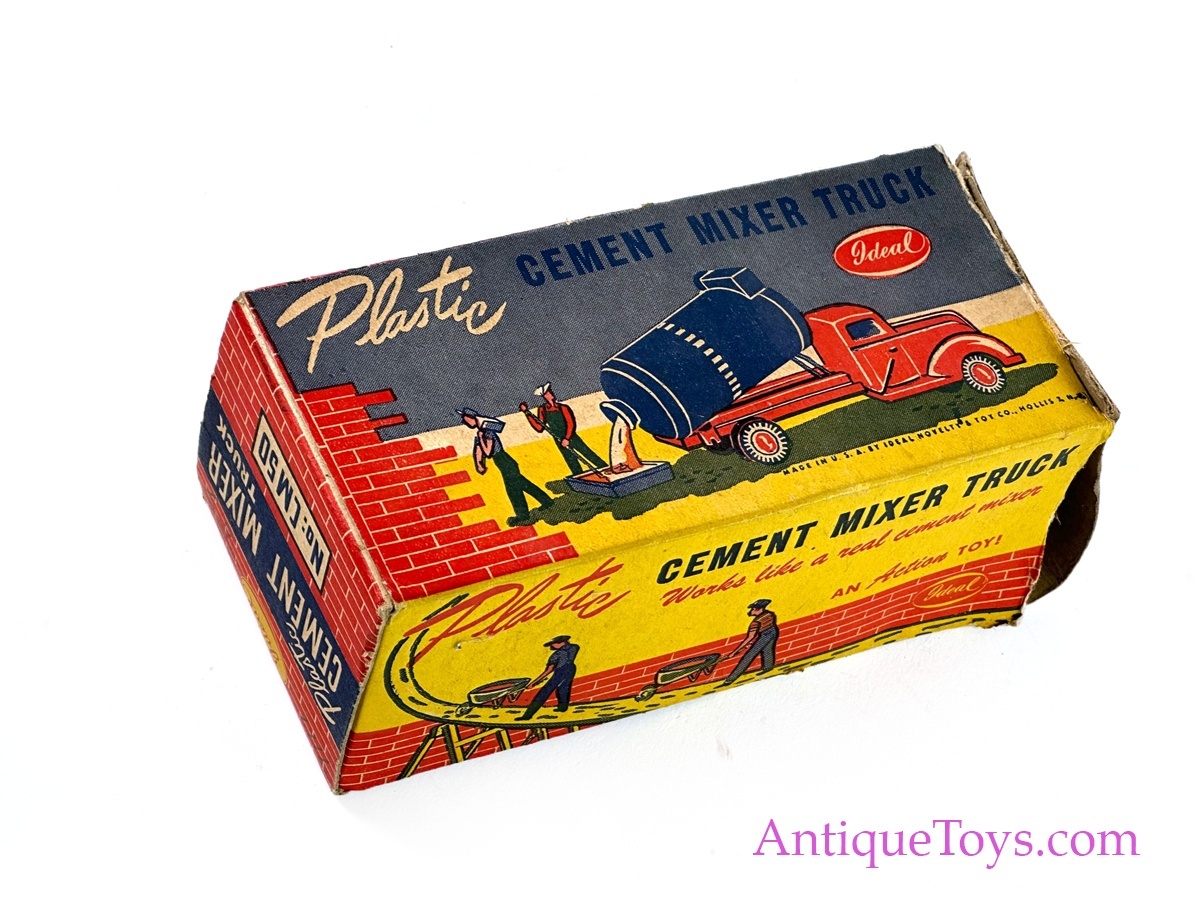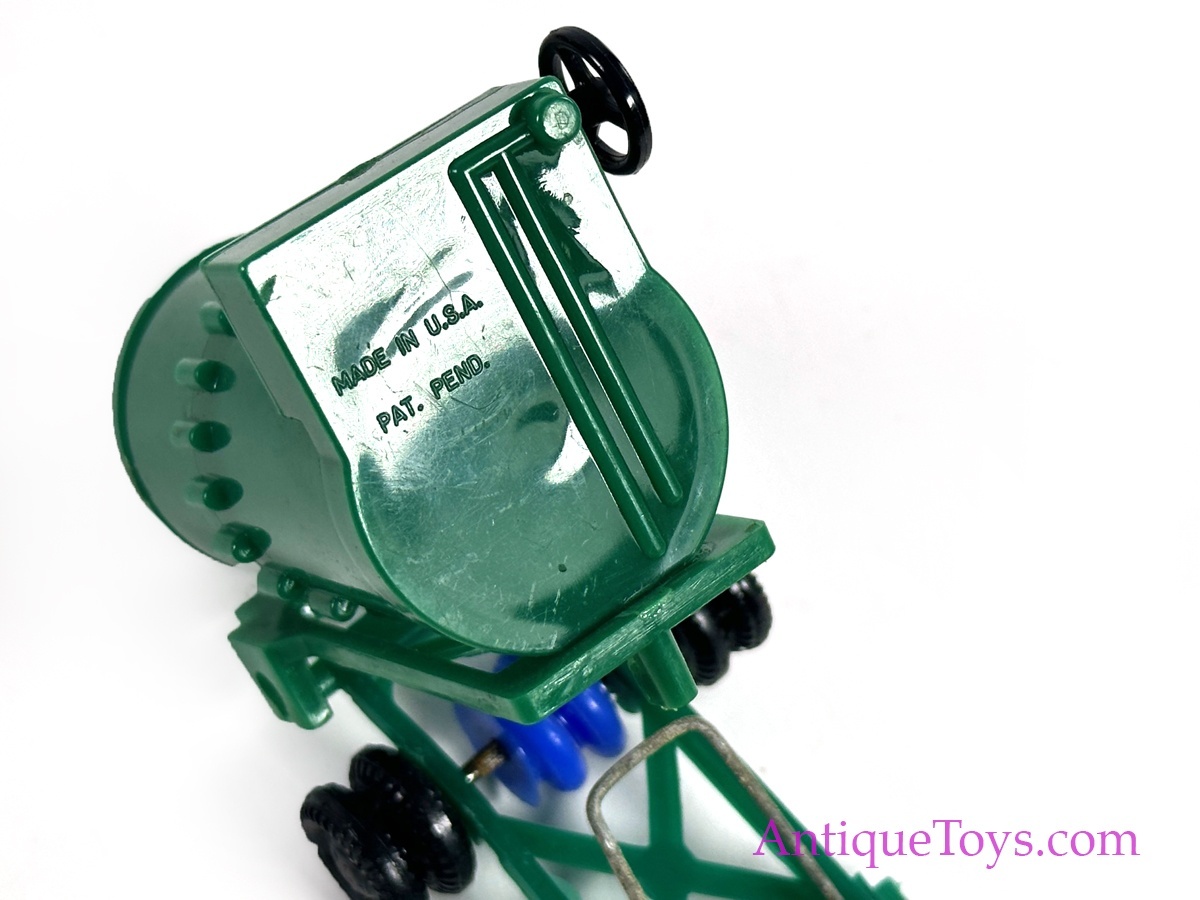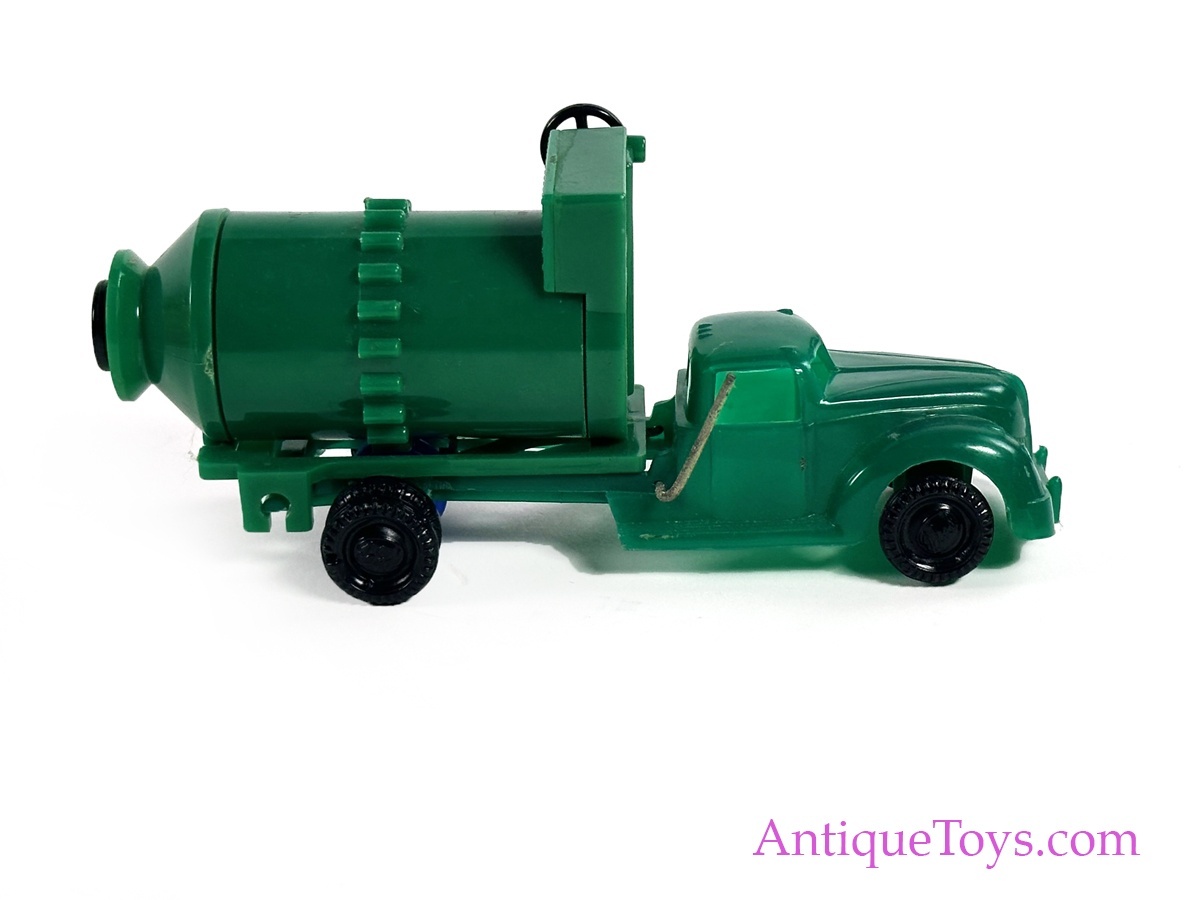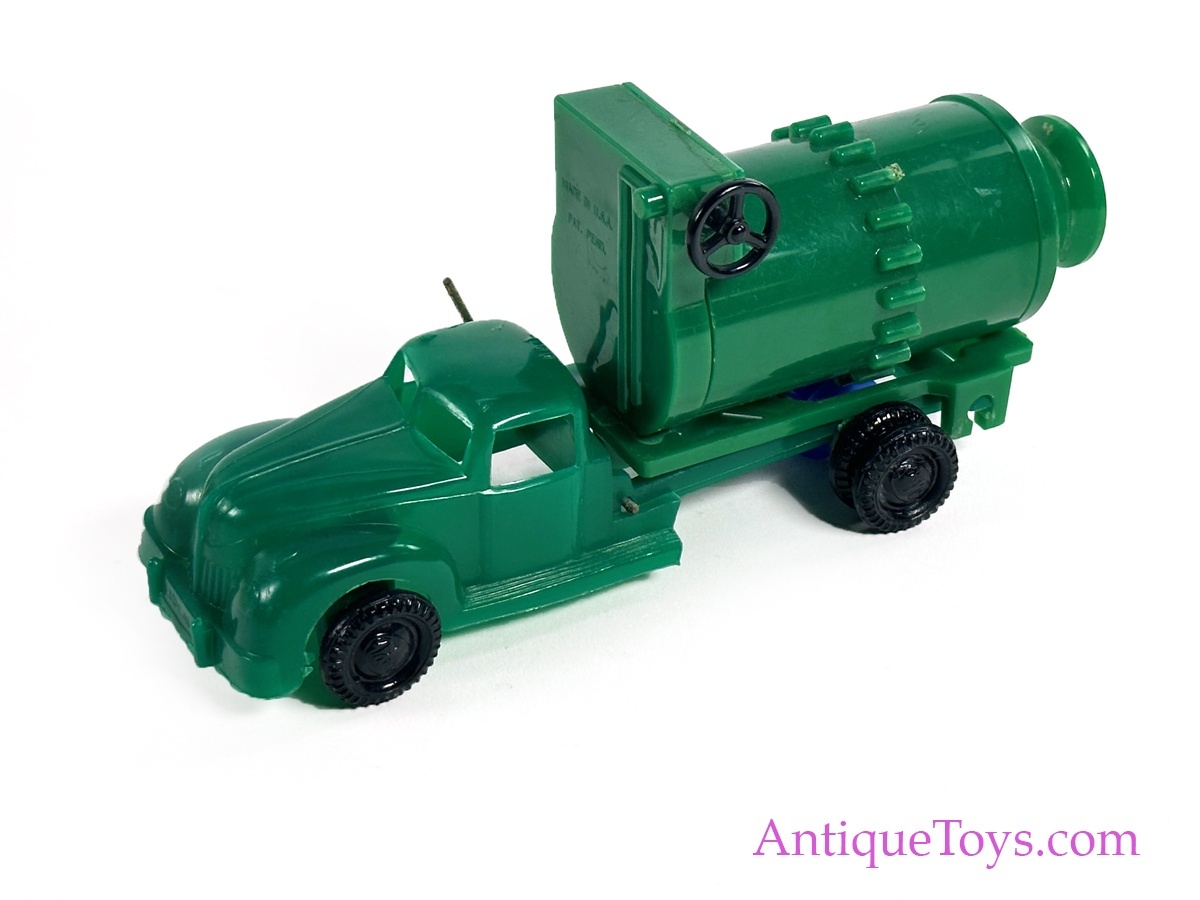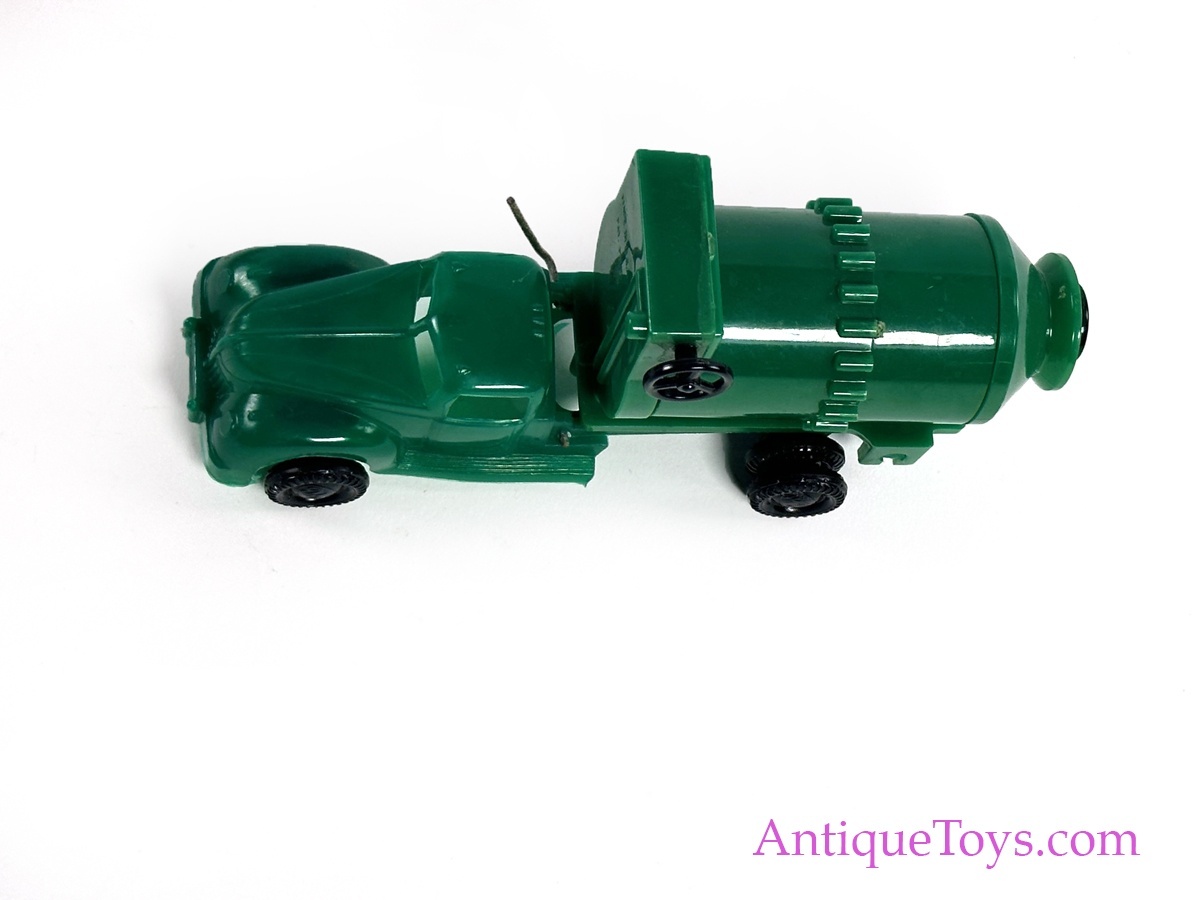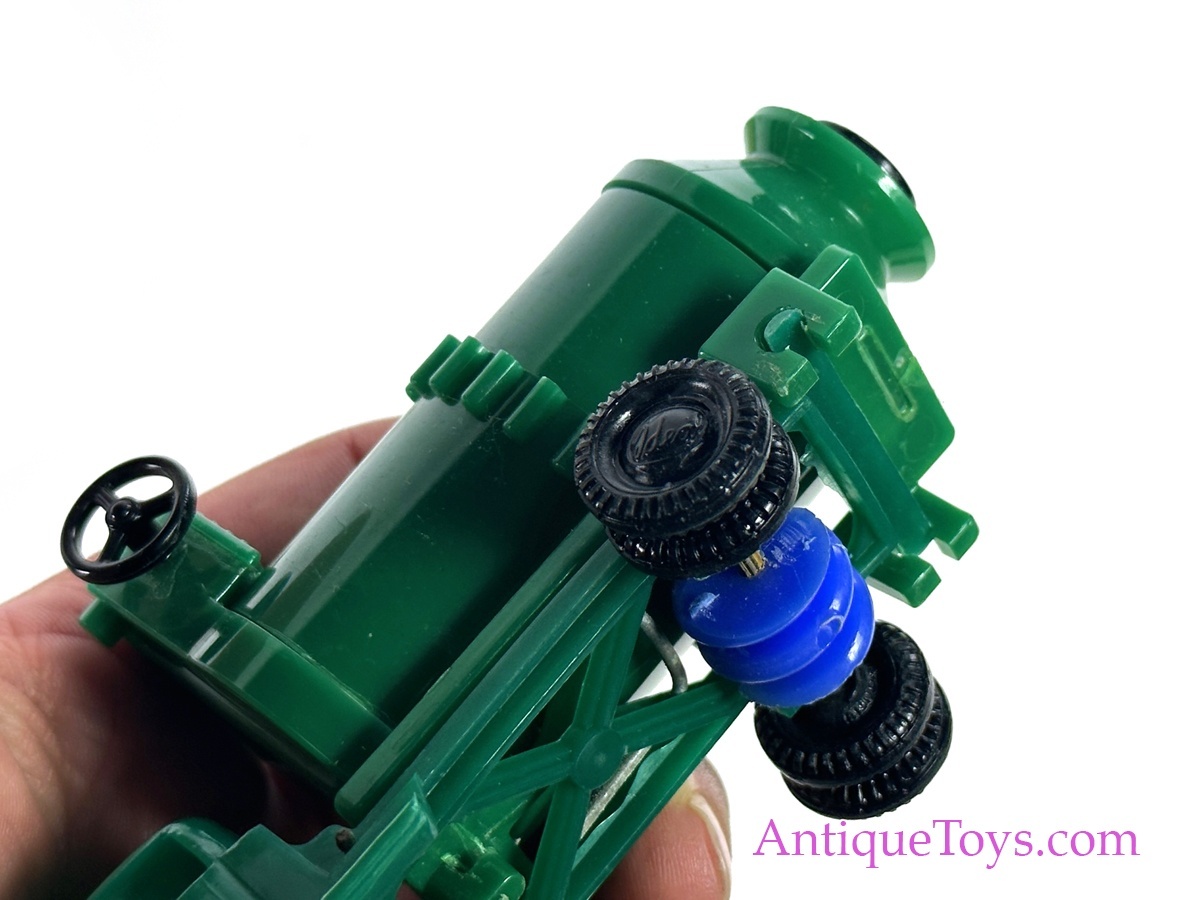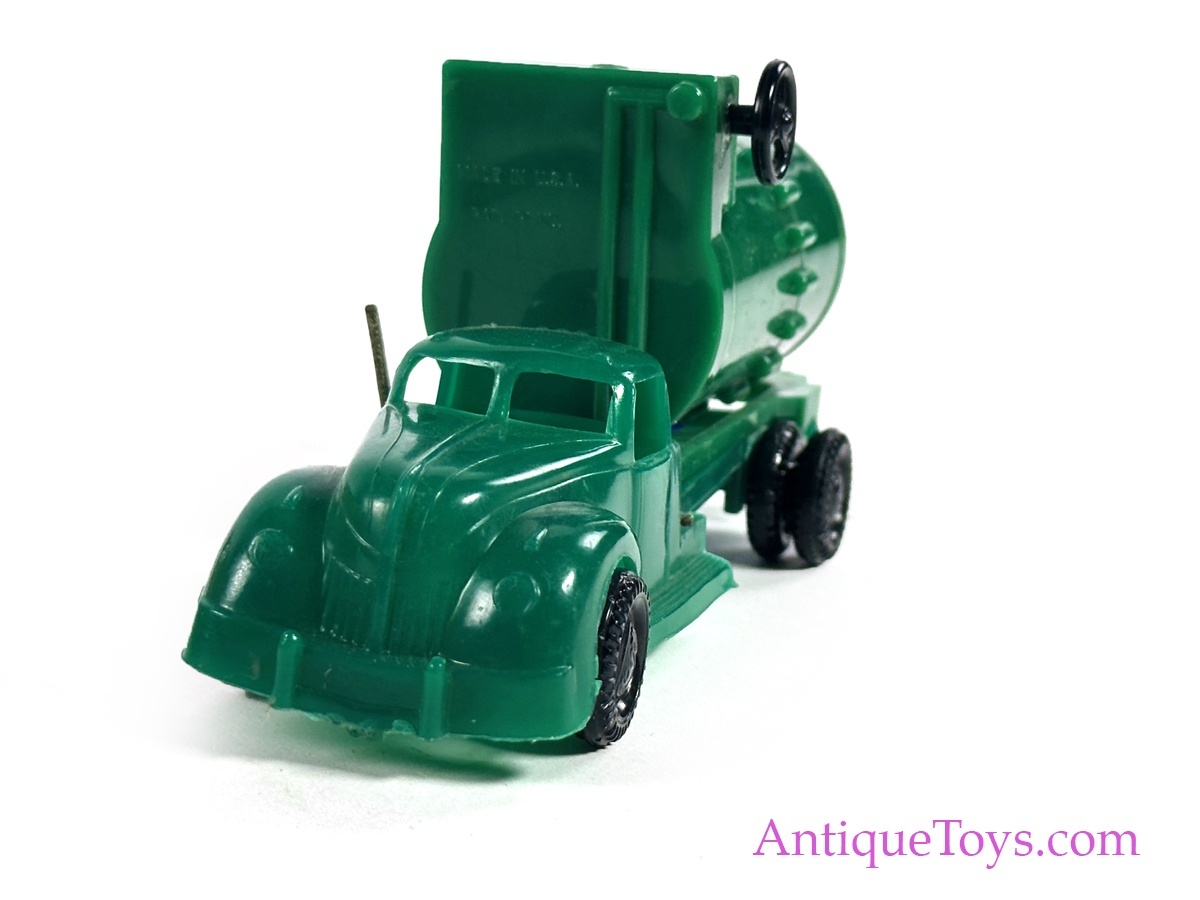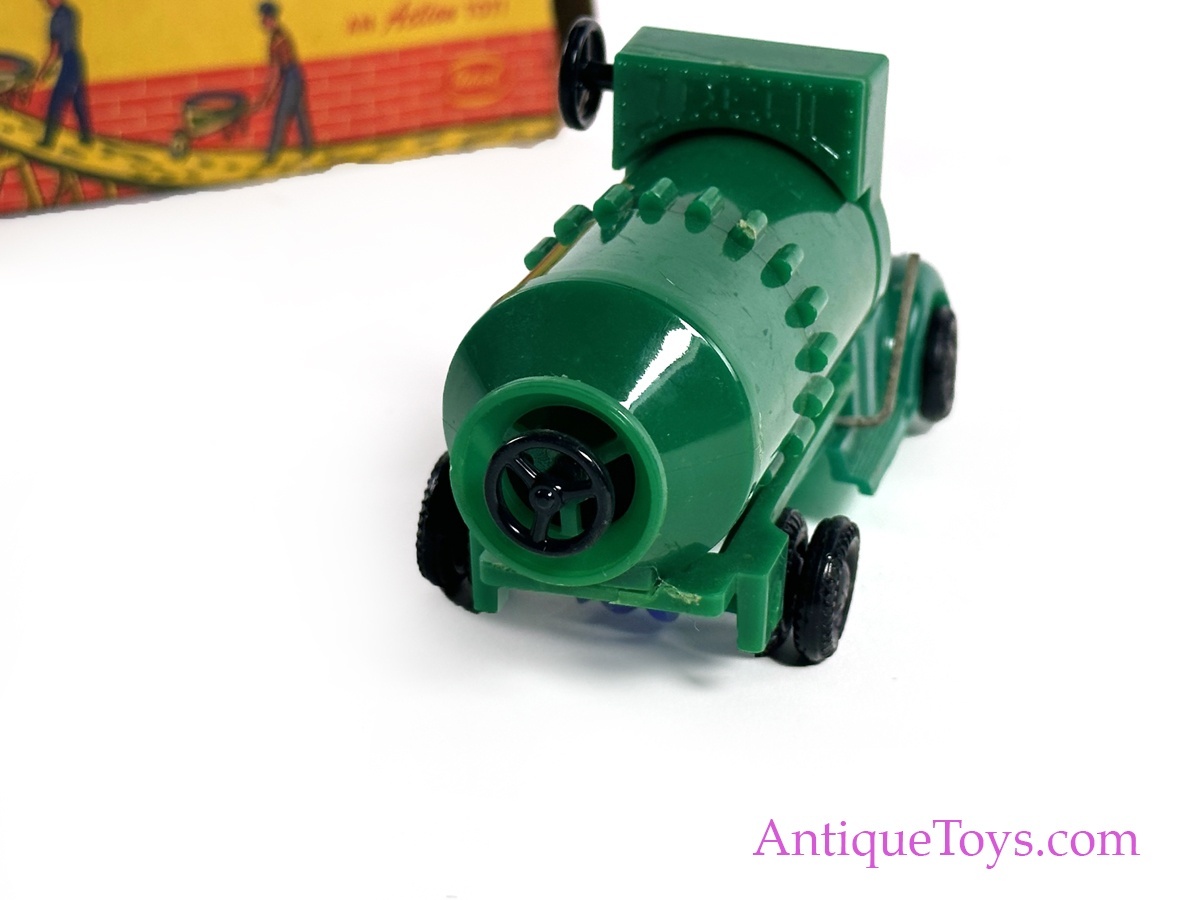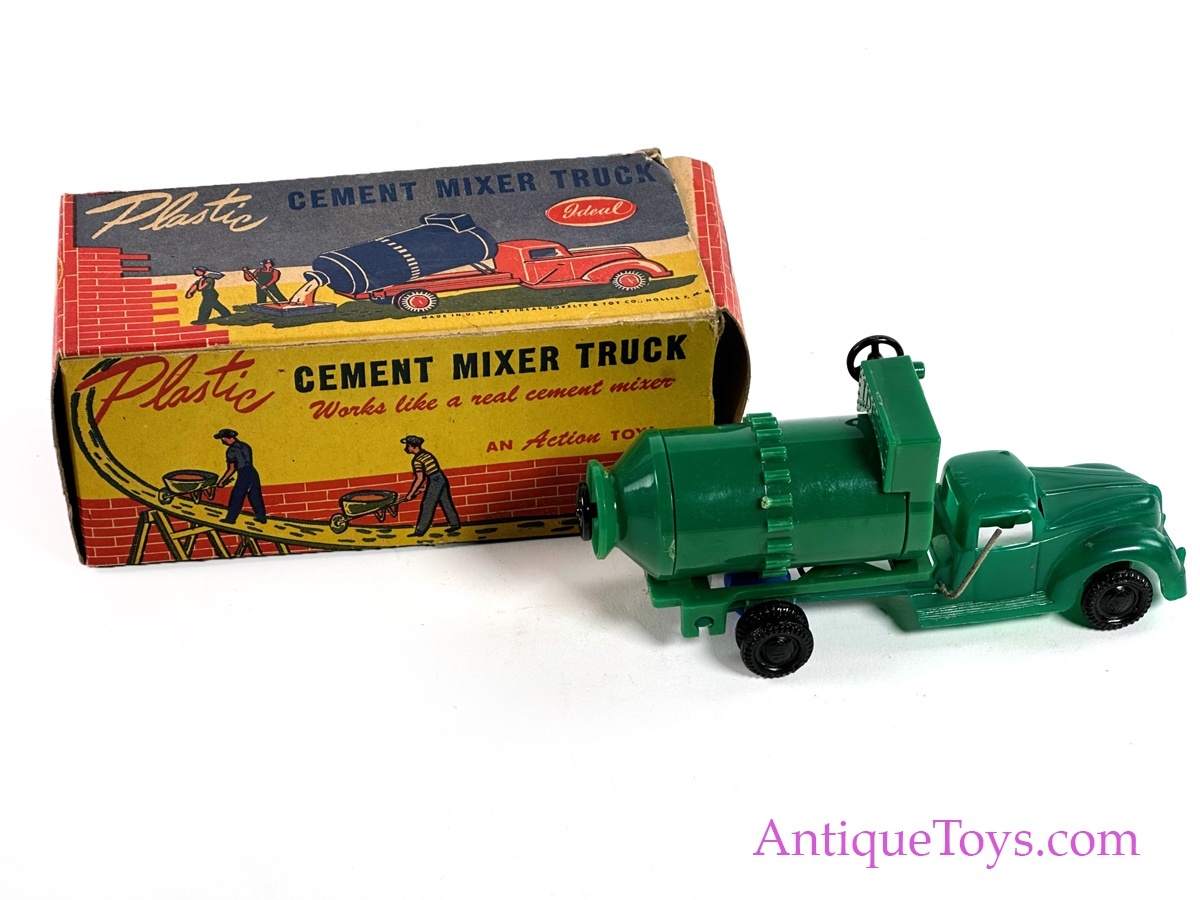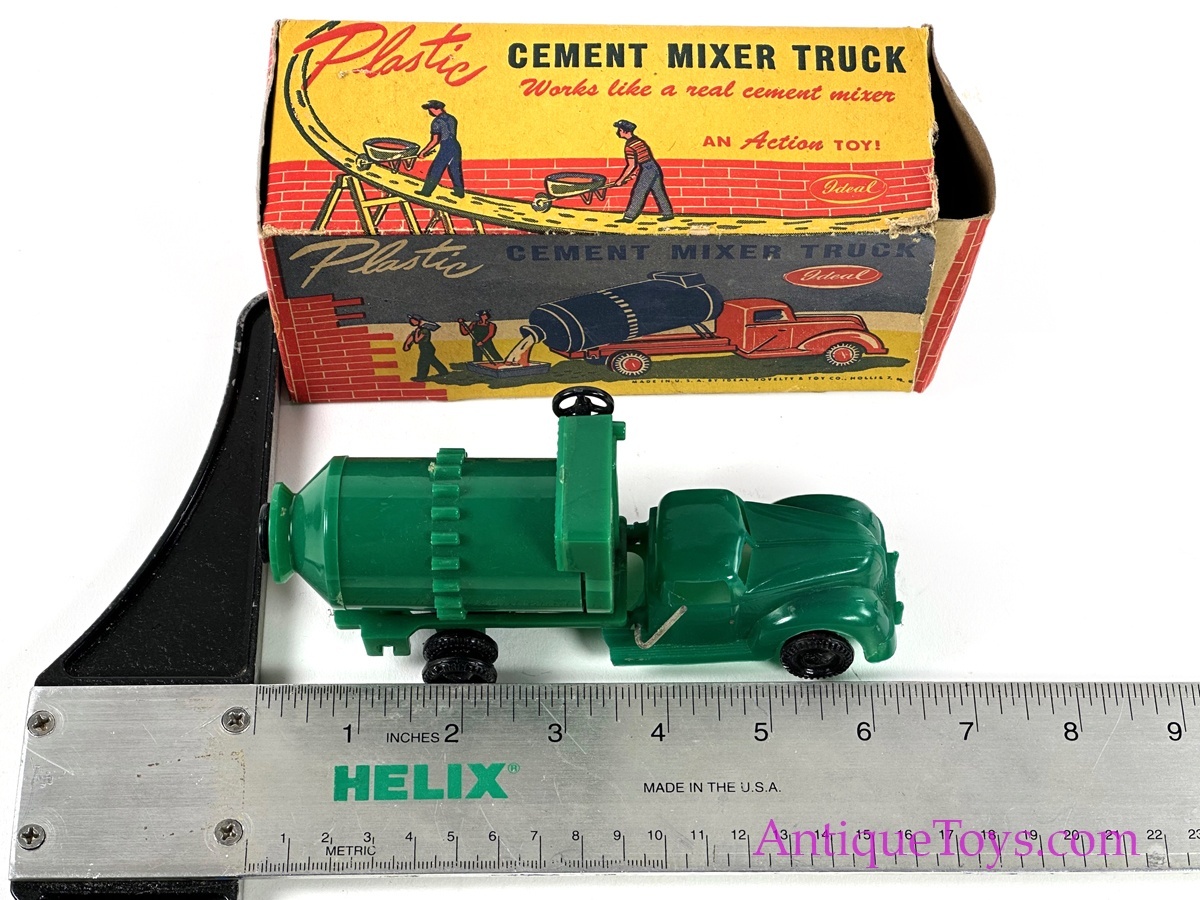Ideal Plastics Cement Truck Toy with Box for Sale
$87.00
Ideal Plastics Cement Truck Toy with Box
Enjoy our post-war gem here by Ideal Plastics. It is a tough little toy to find mint, and ours even comes with the box.
The cement mixer has an operating drum using the back wheels and a worm gear. The cement drum raises and can be held in place with a wire.
Wheels roll.
Length approximately 6.25″.
A brief history of the Ideal Novelty and Toy Company/Ideal Toy Company of Brooklyn, New York:
1903 to Present
Founder: Rose and Morris Michtom
Specialty: Stuffed toys and dolls, anchored by their originating and manufacturing of the Teddy Bear in 1903. Ideal made popular toys and dolls such as the Teddy Bear (1903), the Uneeda Kid doll (1914), the Betsy Wetsy doll (1934-1984), the Toni doll (1940s), Saucy Walker, Shirley Temple (1934), Miss Revlon (1950s), Patti Playpal (1950s-1960s), the Tammy doll (1962–1966), Flatsy dolls (1969–1973), the Crissy doll (1969–1974), the Tressy Gro-Hair doll (1968–1972), Thumbelina, Tiny Thumbelina, Wake-Up Thumbelina (1970s), the Milton Bradley games Mouse Trap (1960s-1970s), Hands Down (1960s-1970s), and Kerplunk (1967), the Taylor Jones and Tuesday Taylor dolls, and Wake-up Thumbelina doll (1970s), Evel Knievel toys (1972-1977), the Magic 8-Ball (1970s), the Magic Cube/ Rubik’s Cube (Hasbro/Ideal, 1980s).
The Ideal Novelty and Toy Company was founded in 1903 in Brooklyn, New York by Rose and Morris Michtom after they invented the “Teddy Bear”. After Morris Michtom’s death in 1938, the Ideal Novelty and Toy Company changed its name to the Ideal Toy Company, and Michtom’s nephew Abraham Katz became chief executive.
During the post–World War II baby boom era, Ideal became the largest doll-making company in the United States. Ideal was one of the first doll manufacturers to produce an African American version of a popular doll Betsy Wetsy which was produced from 1934 until 1984.
In 1951, Ideal collaborates with its partners the American Character Doll Company and the Alexander Doll Company, and establishes the United States-Israeli Toy and Plastic Corporation. In 1968, the American Character Doll Company filed for bankruptcy and Ideal acquired the defunct company’s dyes, patents, and trademarks. In 1971, Ideal Toys bought Alabe Crafts (1946-1971, Magic 8-Ball).
In the 1980s, Ideal licensed the Magic Cube (1974-1980) from Hungarian sculptor and professor of architecture Ernő Rubik and rebrands it as the Rubik’s Cube. This was Ideal’s last big hit toy and continues to sell worldwide to this day and is owned by Rubik’s Brand Ltd which was acquired on October 27, 2020, by Spin Master (1994-present). In 1987, Ideal is acquired by View-Master and the View-Master Ideal Group (VMIG) is formed. In 1989, the View-Master Ideal Group (VMIG) is sold to Tyco Toys.
In 1997 Ideal once again changed hands when Tyco Toys merges with Mattel, Inc. Ideal’s United Kingdom assets are sold to Hasbro. At this point, the Ideal trademarks, and most toy molds not purchased by Hasbro or Mattel, were purchased by Jay Horowitz of American Plastic Equipment who then licensed the trademark and toy rights to Plaza Toys, to be used on its Fiddlestix building sticks products.
In 2003, the Ideal trademark and toy rights were sold to Poof Products (1980s-2004 when it becomes Poof-Slinky). In January 2014, the Ideal brand and toy rights became part of a new company, Alex Brands (1986-2020, rebranded as Alex Global Products). In early 2019, in all categories outside of toys and playthings worldwide, Jay Horowitz of American Classic Toys entered into an exclusive license agreement with the Juna Group to represent select Ideal brands that were not included in the sale to Poof Products.
1 in stock
Additional information
| Weight | .8 lbs |
|---|---|
| Dimensions | 7 × 7 × 6 in |
